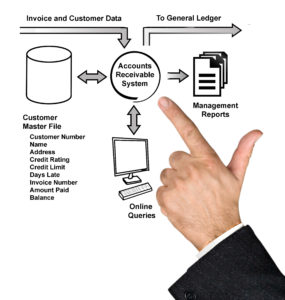For many years, business media has hammered home the point that data silos are inefficient and dangerous, creating information barriers and interrupting the potential for collaboration among departments. By now, most of us are well aware that data silos can harm reporting, analytics, accuracy, and automation—but too many businesses are focused on reducing silos in their data management rather than in their financial system.
Financial silos, such as modular accounting systems that use multiple ledgers separating accounting payables from receivables, may not be in the crosshairs of business media, but they are just as dangerous to businesses as other data silos—if not more so.
The Problem With Modular Accounting Systems
The financial ins and outs of your business are all documented in your accounting system. Expenses and income, costs for various levels of the operation, sales history, purchase records and more. All of this information is critical not only in indicating where your business “is,” but where your business might be going—or might need to go.

Financial transactions are data, and when you silo the data of your daily business with separate ledgers, you will never have a current, up-to-date picture of how your business is doing right now. Instead, by the time the data is batched and reconciled, compiled and reported, you are looking at a lagging indicator of your business’s health. Any trends you recognize are already progressed, and you’ve lost the opportunity to handle problems early.
What Is a Unified General Ledger
A unified general ledger is a single accounting book or system in which all transactions are recorded. Because all sales, purchases and other expenses are logged in a single location, the unified general ledger system allows finance departments and others to get a quick snapshot of a company’s financial position and health in a single glance. Codes are used within the book to categorize transactions for easier reporting and tax filing. In some unified systems, rules can be created to help automatically assign repeated transaction types to a preassigned categories, both saving time and reducing errors.

How Your Accounting System Can Lose You Clients
It’s bad enough that ignoring a unified general ledger hurts your business operation but even worse, it can impact your clients negatively. So much so, they could leave you for a firm with a more cohesive system.
Consider this: Timely delivery of reports is critical to your clients. When your office must first compile, consolidate and reconcile data before developing reports, your response time slows. Clients want—and have come to expect—accurate, informative reports within moments of requesting them. If you ignore a unified general ledger, you keep those reports just out of your clients’ reach, for no good reason.
What if it’s not a report that your client wants quickly, but a copy of a bill or a receipt? Once again, a modular accounting system presents an obstacle that prevents your clients from getting their request fulfilled quickly.
Speaking of timeliness, getting a fast response from your office is one of the most common expectations clients will have. A modular accounting system can delay your response for many reasons—first because your siloed accounting prevents you from answering client inquiries without first reconciling data. But another way modular systems slow you is by taking away the automation options offered by general unified ledgers. Instead of being able to automate duties such as billing and entering transactions, your staff will need to manually handle these tasks, keeping them from completing more client-focused duties. Worse, by reducing the amount of automation in your accounting system, you increase potential mistakes, which hurts your clients even more.
If your business is looking for ways to improve, one of the most basic but important systems you can change is your accounting. Evolving from a modular system to a unified general ledger will offer the kind of streamlining that employees, clients, and the C-Suite will all benefit from.
